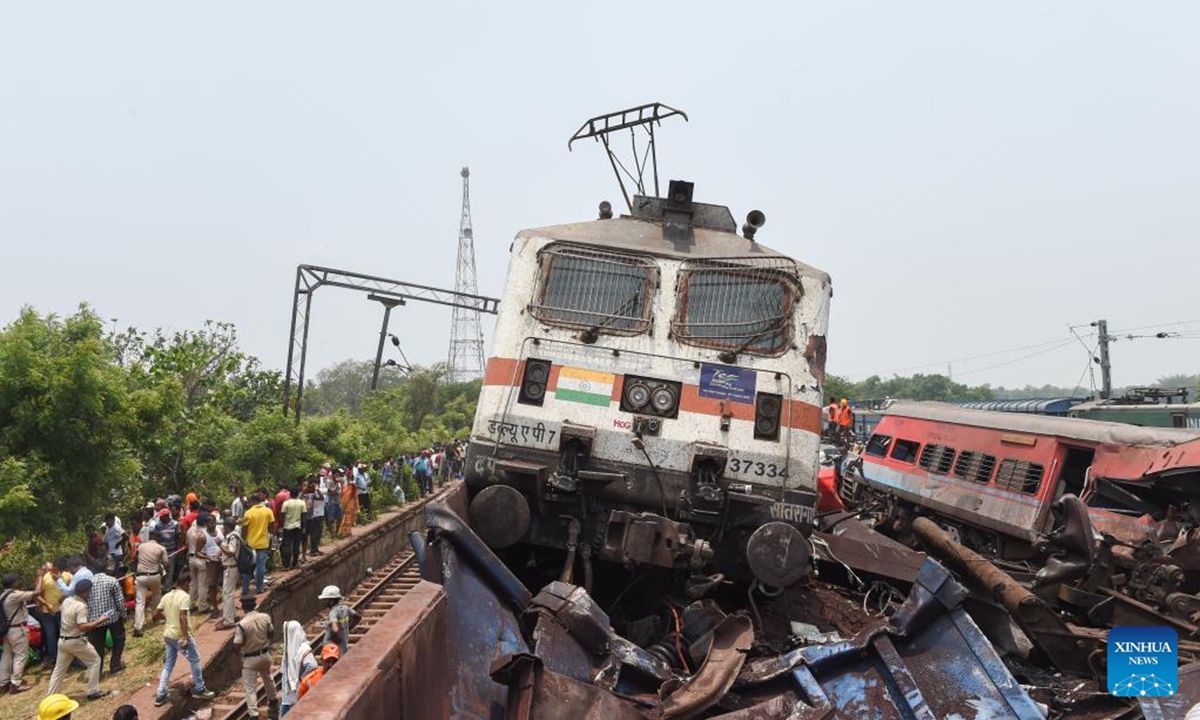
People gather at the site of a train collision in Balasore district in the eastern Indian state of Odisha, June 3, 2023.(Xinhua/Javed Dar)
The tragedy of a crash involving three trains in the eastern Indian state of Odisha has caused at least 275 deaths. Families of the dead will receive one million rupees ($12,000), while the seriously injured will get 200,000 rupees, according to the country's railway minister. Indian Prime Minister Narendra Modi stated that people found guilty will be "severely punished" for the Odisha accident, but the overall public's demand for accountability in India is low. Fatal train accidents frequently occur in India, but there are almost no records of serious accountability, so Modi's statement is merely rhetoric.
The Indian Railway Ministry was able to investigate and analyze the cause of the accident calmly. Their preliminary statement was that "a change in electronic interlocking" caused the accident. Additionally, some analysts believe that India's railway system is too old and many railways are still from the colonial era. With the increasing transportation volume, the entire system is overburdened. India faces the daunting task of updating its railway system and improving safety, which requires huge investments.
In fact, modernization in the civilian economic sector means an increase in modernity and safety at the same time. However, every increase in safety means an additional layer of cost. China went through a process of significantly increasing safety costs, in which strong public criticism of disasters and calls for accountability played a significant role. To be honest, every major accident puts enormous pressure on the relevant companies and the local governments.
Compared with disasters in India and the West, we can see that Chinese society has the lowest tolerance for "man-made disasters" and the strongest calls for accountability. Although China also has accidents that occur due to negligence - our society is, after all, too large, China's efforts to prevent and mitigate disasters have been near the limit, and the effect is also true. This is the common choice of the whole society on safety production.
Over the years, many Chinese officials at the city and even provincial levels have been dismissed from their posts and had their political futures ruined because of serious major safety accidents, and the figure of Chinese officials being held accountable is certainly the highest in the world. This highlights the consensus and determination of our entire society to refuse development to be carried out brutally and crudely.
I think India will have a long time to fumble with whether to increase security inputs and how to share the cost, a process and cost that developing societies have to go through. Regarding the fundamental area of human rights, poverty is indeed the root of all evil. I sincerely hope that equality will be pursued within a country and brought among all countries through globalization and that all will truly share modernization and the security that goes with it.
The author is a commentator with the Global Times. opinion@globaltimes.com.cn




